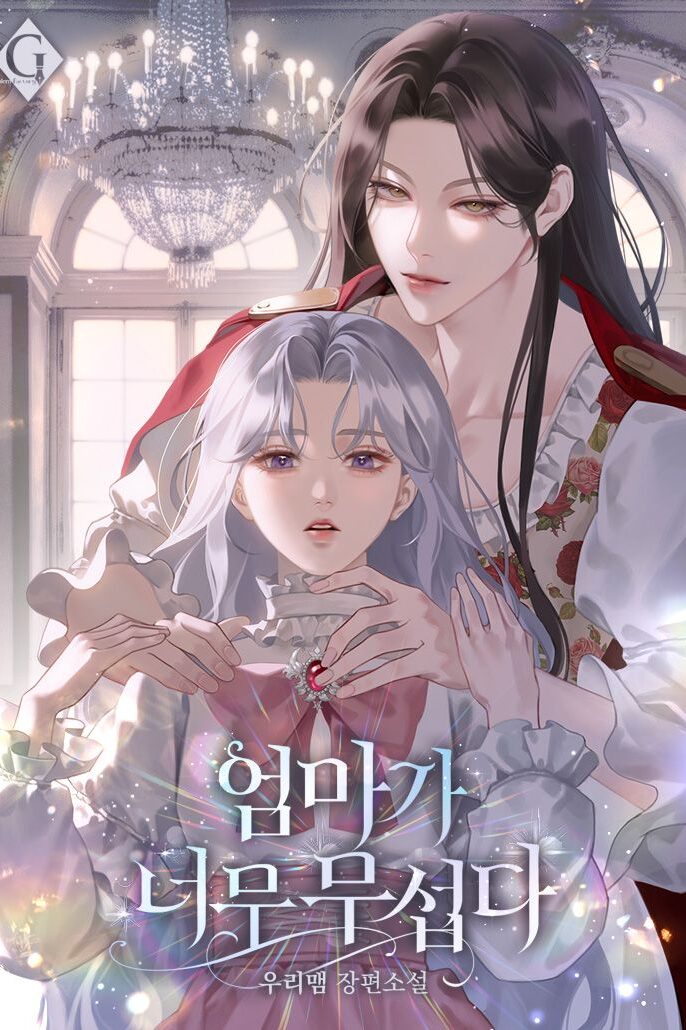Chapter 60
Chapter 60
13. Intermission
It was one of the small cities in the provinces.
There was a major shipbuilding company in the area, so there were plenty of jobs—but not all of them required skilled labor. Due to the nature of the shipyard, there were many physically demanding jobs that didn’t require specialized skills like welding. These were the kinds of jobs where, after learning for just a few days, you could be thrown straight into the field.
Nowadays, most of those jobs are filled by foreign workers, but back when I was a child, they were mostly done by Koreans. After all, shipyards were the epitome of labor-intensive industries.
In any case, regardless of gender, the work was physically exhausting, and yet the pay wasn’t extraordinarily high. Still, it was more money than you could ever make working a desk job at some no-name company.
Room and board were often provided, but that usually meant cramming three or four people into a single-room apartment. Most of the work was basically day labor, structured through multiple layers of subcontractors, and unpaid wages were far from uncommon.
But if a job didn’t require skills, didn’t care about education, and even provided meals and a place to sleep—what kind of people would be drawn to it? Among those in urgent need of cash, there were surely some good and decent people. But more often, it was those at the very bottom of society who ended up there.
“Mom, where are we?”
“Uh… You remember Mom’s friend, Aunt Jin-kyung? She works here, and said the shipyard pays well, so I came here to work.”
People who had nothing but their bodies came to this place to make money. Many came with the mindset that they’d work hard for a few years, save up, and get out. Thinking back now, I believe Mom had that same thought too.
“This is the man we’re going to live with from now on. Say hello.”
“Hello.”
“So you’re Chi-woo. I’ve heard a lot about you from your mom. Oh, this is my son—Sung-wook.”
Responsible employers would at least ask for a document to check for prior convictions. But crooked ones just shouted “okay” to everything and pocketed money by accepting anyone and everyone. I think our brother’s father must’ve been one of those who slipped in through that system.
“I’m two years older than you, so call me hyung.”
“Okay… I will. Hyung.”
“Dad, I’m so happy I have a little brother now… So can you not drink today, please?”
It hadn’t even been a full month since we arrived by intercity bus. Mom, who had come saying she’d earn money at the shipyard, couldn’t resist and quickly got involved with a man.
We started living with some guy in a one-room apartment provided as housing. That man had a son. From the first moment we met, he liked me and treated me kindly—Sung-wook hyung. No, our hyung.
“Chi-woo, looks like Dad and the lady aren’t coming home again today.”
“Then it’s just us for dinner again, hyung? We’re out of seaweed, though.”
“Let’s just pour hot water into instant rice and eat it. I’ll get the kimchi too.”
It’s a tired story, but that man had a string of petty crimes and was a lowlife. And Mom wasn’t someone who ever made money the proper way either, so I guess they were a fitting pair.
They probably figured it would be easier to live together since they each had a boy around the same age.
“Chi-woo, it’s not boring hanging out with hyung, right?”
“No, I really like it. I like that we go to school together too.”
“It’s nice to know you two have each other. Makes me feel more at ease.”
Rather than raising kids together, Mom and that man essentially left me and hyung to fend for ourselves. Leaving a kid alone in a one-room apartment might make you feel guilty, but if there are two of them, they’ll eat and sleep together, lean on each other—that’s probably how they saw it. In the end, the ones cohabiting weren’t Mom and that man—it was me and hyung.
“Mom’s heading out for a bit.”
I wonder how many times a year Mom and that man actually took care of us. They’d always be out late into the night, returning to the apartment just as we were leaving for school. Then they’d sleep through the day.
It seemed like they had long since quit the shipyard. We’d already moved twice from our original one-room place, and were now living in an old house with a slate roof on the outskirts of the city.
“Dad and I have somewhere to go too, so Sung-wook… Use this money to get some food, okay?”
I didn’t know how he got the money, but sometimes that man gave hyung quite a bit. With it, hyung would buy food and feed the both of us when we were hungry.
Thinking about it now, it was a ten-year-old boy taking care of an eight-year-old who wasn’t even his blood relative. Hyung had every right to be a kid himself, to want to be spoiled and taken care of. But he never once showed he was struggling—he looked after me as if it was the most natural thing in the world.
The more we lived like real brothers, the less Mom and that man came home. Then one day, they just disappeared from our lives.
“Don’t cry, just tell me. It’s okay… Chi-woo.”
“Teacher… my mom disappeared… She hasn’t come home in over a month…”
Still, the world wasn’t completely hopeless—because there were more people like my homeroom teacher than people like Mom and that man who abandoned us. The school had been aware of our difficult situation, and as we went through the ordeal of losing our guardians, some adults stepped up to help.
“If you’re bored, stop by now and then. There’s a library right next door, so it’s a good place to study, too.”
“Is that really okay?”
“Yeah. If you need anything, just tell this lady—no, this… noona? Hmm, maybe that sounds weird. ‘Auntie’ might be weird too…”
Thanks to the school informing the proper agencies, we received a lot of administrative support. Hyung and I were registered as recipients of public assistance and began to receive government support.
Sometimes they’d call, and we’d go collect things like rice, kimchi, potatoes, or milk—just the essentials. Sometimes, a staff member would bring them to us. Occasionally, the social welfare worker assigned to us would come to our home to check on how we were doing.
“Chi-woo, you have to study hard. You’ve got a brilliant mind… I really hope you use that talent for something good,” said my teacher.
It seemed people really don’t just die because life gets hard. As I moved up each grade, studying became more and more fun.
Especially in the upper grades, there were more reputable external academic contests beyond regular school exams. Every time I entered a competition at my teacher’s suggestion, I placed first—not just in my school, but in the entire province.
“So you’re Shin Chi-woo, sixth grade at Janggok Elementary.”
“Yes. May I ask who you are?”
“Have you ever thought about studying more seriously? We won’t charge you for lessons—how about learning from our teachers?”
Around the time people began calling me more than just a smart kid, saying I might be a prodigy, people started coming to see me. A few academy directors offered to teach me for free. I was tempted, but I turned them all down.
I had no parents, no guardians, and because I did well in school, some of the other parents started to feel threatened. I was sure there’d be a cost to any “free” education. I didn’t want to owe anyone anything. It felt like the only way I could protect myself.
“That little beggar’s the reason my kid can’t be number one…”
“I heard the kid he lives with—his so-called brother—has been hanging around with local delinquents. If he ends up in juvie, that boy’s going to an orphanage, right? Maybe they’ll make him transfer schools too.”
The worst of it came during the school-wide student council president election. Embarrassing to say, but I was kind of popular. With encouragement from my teacher and support from classmates, I entered the race for fun—and somehow, I won.
“How can a welfare case with no parents become the student council president?”
“Shouldn’t the president be someone who can help the school?”
“Having someone like that as president lowers the school’s reputation.”
Was there some law that said orphans, or welfare kids, or kids with delinquent siblings couldn’t be student council president? It was just elementary school, but the outrage from parents over me winning was intense.
“I don’t want to do it anymore.”
“Why, Chi-woo?”
“It’s just too much pressure. I’m sorry, teacher.”
Calling it a “resignation” from the position of student council president is laughable, but anyway, I gave it up—and for the first time, I think I really resented the situation I was in.
I hadn’t chosen this life. I was just born into it. I happened to be born to an irresponsible mother who abandoned me.
All of you—someday when I become a judge, or a prosecutor, or whatever it is that gives me power—I won’t let a single one of you off easy.
In sixth grade, you start to think you’re pretty grown up. In a disillusioning world, the only revenge I could take was to study harder than anyone else.
-
🌸 Hello, lovely! If you’d like to support me, feel free to check out my Ko-fi and donation link🌷💕 https://ko-fi.com/breeree https://bree-zxt-shop.fourthwall.com/
View all posts





